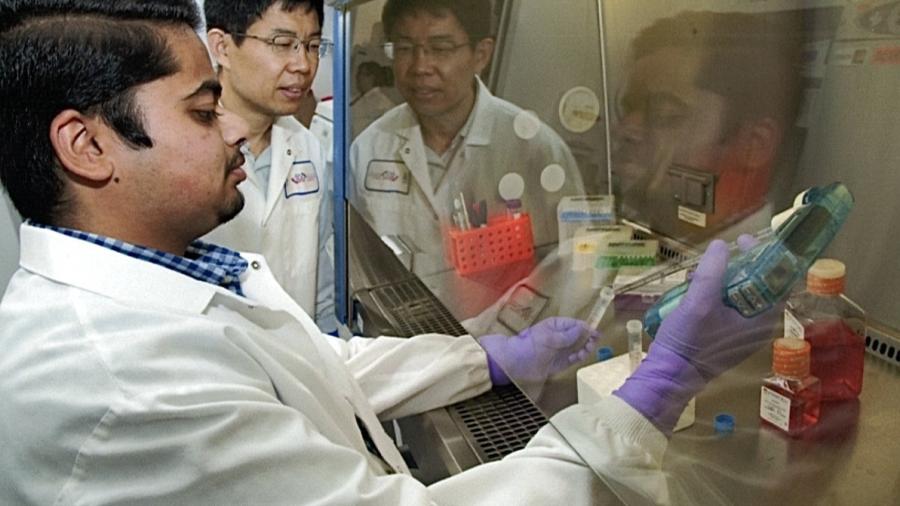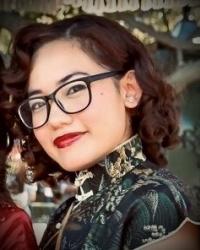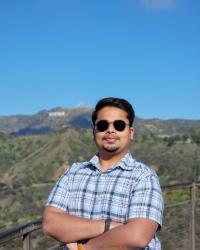Paving the road to their future: how SOLS students are taking their education to the next level with internships

Nabhan Fakrudin, an ASU senior studying molecular bioscience and biotechnology and intern at the University of Arizona's College of Medicine’s Center for Applied NanoBioscience and Medicine works in the Organ-On-Chip research project with Drs. Jian Gu and Julie Getz.
School of Life Sciences students ElanaGrace Fernandez and Nabhan Fakrudin are working hard - on and off campus. Through the undergraduate advising office at SOLS, Fernandez and Fakrudin scored internships in their desired career field as undergraduate students.
Fernandez, an ASU Online student through the Starbucks College Achievement program is majoring in biological sciences and hopes to one day be a dentist and own her own practice. Since October 2023, she has been interning at Comfort Dental in San Diego as a dental assistant. Through her internship, she not only has sharpened her technical skills, she’s also learned a lot about the type of dentist she wants to be, and how she hopes her patients will feel when they sit down at the chair in front of her.
To achieve her career goals, Fernandez plans on taking after the dentist at the practice she’s interning at. In a business where it patients can feel like they're being nickel and dimed, Fernandez wants to follow in her mentor's footsteps and create trust between she and her patients. She recalls one of her most memorable moments assisting him with an elderly patient who had an unexpected turn of events during what was supposed to be a routine procedure. “When the procedure was over, he told the patient honestly, ‘that was like opening a can of worms, to be frank with you,” Fernandez says. The doctor told him that “he'd treat the patient like his own father,” saying “‘I’m not looking at this like an opportunity for money. You’re a patient who’s part of our family.’” Fernandez hopes that her future patients feel like they’re being treated like family - not just any other patient.
While working full-time, pursuing her education and participating in an internship, Fernandez says that the best advice she can give is to “enjoy everything that comes with the journey and prioritize your mental health. Through discipline, motivation and taking care of yourself, it is possible to do all these things at once and achieve your goals.”
Fakrudin has studied on ASU’s Tempe campus for four years and will be graduating in May with his bachelor’s of science in molecular bioscience and biotechnology (MBB). At the beginning of his collegiate career, he started at ASU majoring in aerospace engineering. Shortly after starting at ASU, “my grandparents were diagnosed with debilitating life conditions - Parkinson's and Alzheimer's - which was largely the big influence that led me to switch to MBB,” Fakrudin said.
During his time as an undergraduate student in SOLS, Fakrudin has held two internships. His first was at TGen as part of the Helios Scholarship program, a paid, eight-week summer internship program in biomedical research open to incoming and continuing undergraduate, graduate and medical school students who have studied at an Arizona high school, college or university. Interns in this program work full-time on a research project under the mentorship of a TGen scientist to unravel the genetic components of diabetes, neurological disease and cancer.
Currently, Fakrudin is an intern at the University of Arizona’s College of Medicine’s Center for Applied NanoBioscience and Medicine in downtown Phoenix. “I think it's a very interdisciplinary research focused center,” says Fakrudin. “We have things from plant research to cellular research where we grow cells in organ-on-chip systems and designing and developing models for therapeutics that are in clinical testing stages are among many things that we do at the center.”
Specifically, Fakrudin works “on the human blood brain barrier organ on chip system where we use iPSCs that are differentiated into the human blood-brain barrier and we're actually working on an accelerated differentiation pathway to make that faster.”
For students interested in internships, Fakrudin’s advice is to “never stop asking professors and advisors about opportunities or ways to grow your network. In my personal experience, faculty have always been eager to help me make connections or write letters of recommendation. You never know until you ask!”

